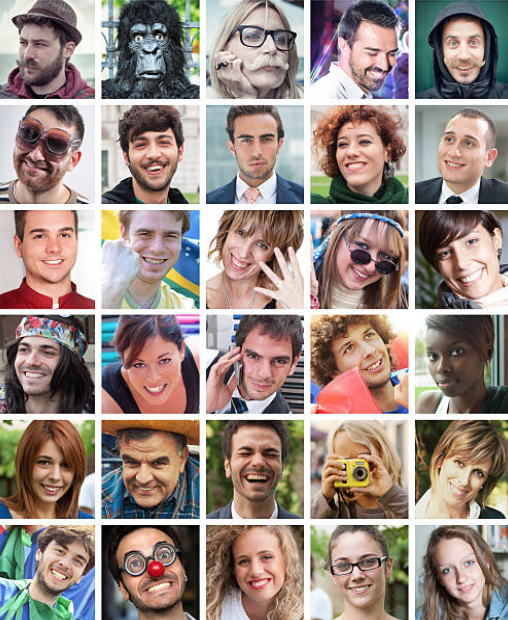With the recent rise in technology, the clicking of keyboards, number of likes on a post, and perfectly filtered photos, have become a prominent discussion. The buzz has members of various social media communities questioning the safety of the platforms, the quality of the content, the psychological ways in which individuals interact online, and the overall intentions of media users.
 University of Iowa Assistant Professor, Dr. Andrew High, is an expert in interpersonal communication and computer-mediated communication. He focuses on how people give and receive supportive messages and the effect it has on their online experiences. His research helps audiences understand the reasoning behind certain online activity and interaction.
University of Iowa Assistant Professor, Dr. Andrew High, is an expert in interpersonal communication and computer-mediated communication. He focuses on how people give and receive supportive messages and the effect it has on their online experiences. His research helps audiences understand the reasoning behind certain online activity and interaction.
He addressed a specific study that he conducted a few years ago regarding social anxiety and the differences in how those individuals interacted in person versus messaging on an online instant messaging device.
“People with social anxiety often don’t do well with face-to-face to interactions simply because they fear of people judging them. We found people in this study that had social anxiety actually did better when they were behind a screen. The stranger they were interacting with were more satisfied with their behavior and thought they seemed less stressed.” said High.
He presented an example of how social media platforms, specifically Facebook, can be a source for supportive messages and other similar interactions.
“Particularly on Facebook, people will post these sad, vague, and mysterious status updates, and they’re doing so in a way to seek recognition and support in something they’re going through. We don’t always know for sure how people seek support on Facebook, but I think people are doing things that we might not often recognize. Things such as humor or general venting can be presented in a way that shows what they really desire is some sort of support.” said High.
Dr. High also talked about some benefits and setbacks from online interactions and how those factors can impact people.
“Certain people generally prefer to interact online because they feel safer and believe they are more effective communicators. People are increasingly turning to the internet to deal with difficult interactions and that can be both positive and negative, it just depends on the individual.” said High.
Melissa Tully, an assistant professor of journalism at the University of Iowa, is an expert in social and digital media. She also has knowledge regarding the interpersonal communication aspects of how people interact on social media platforms.
“I tend to think the wall between online and offline is not really a wall, it’s more of a thin curtain. What we do online and offline are inherently tied. So yes, maybe you’re more likely to say something cruel online, but that doesn’t mean it doesn’t affect your life outside of the internet. We may act differently when we’re online, but our feelings and personality don’t necessarily change.” said Tully.
She also shared her views about how society views and discusses the topic of social media.
“In research, when we look at these platforms, we try to not say this is holy good or this is holy bad. We should look at what’s happening, what are people doing, why are they doing it, and how we can understand social relationships more broadly. You can look at any specific platform and any specific use of that platform and find arguments on both sides.” said Tully.
To hear more of Professor Melissa Tully’s thoughts on why these conversations regarding social media began, click the full interview at the link below…
These days, social media users can be found in age groups as young as elementary and middle school. But college campuses around the nation are home to thousands of students that interact with fellow social media users in varying ways. Some University of Iowa students reflected on their opinions on the pros and cons of the media world.
Alyson Krapfl, a senior music therapy student, shared some of her experiences with using social media and how it has changed since she first began using it. She also talks about how she typically uses social media to keep up on current events, stay in touch with friends and family she doesn’t see often, and “creep on people’s profiles”.
“I began using Facebook when I was a sophomore in high school and I’m not really sure if it’s changed for the better or for the worse, but it has definitely changed. And maybe it’s just me getting older, but I feel like when I was younger I used it more to communicate with people and actually post on people’s walls. Now, I feel like social media is being used as a place for people to express their opinions and to try and persuade people as to why they’re right about something.” said Krapfl.
She also talks about how she typically uses social media to keep up on current events, stay in touch with friends and family she doesn’t see often, and “creep on people’s profiles”.
Matthew Nagorzanski, a graduate student in the chemical engineering program, shared similar thoughts on the evolution of his social media experiences.
“For the most part, I think social media is a wonderful invention. But the thing I hate most about it is I’ve been out with my friends only to have them checking their phone most of the time. I’ve also had people stop enjoying the moment because they were too focused on getting it on snapchat.” said Nagorzanski.
He believes that the ways people interact online play major roles in a lot of people’s social media presence.
 “The interaction between people on social media, just like anything else, is good and bad. My family can always see what I’m up to, just as I can do so for them. But I don’t like how that loss of the physical in-person connection can really allow people to say some pretty awful things like cyber bulling and hate speech. Some people just really don’t take into consideration the way they interact online versus in person.” said Nagorzanski.
“The interaction between people on social media, just like anything else, is good and bad. My family can always see what I’m up to, just as I can do so for them. But I don’t like how that loss of the physical in-person connection can really allow people to say some pretty awful things like cyber bulling and hate speech. Some people just really don’t take into consideration the way they interact online versus in person.” said Nagorzanski.
Amy Letavay, a freshman nursing major, uses social media purely for entertainment, though she acknowledges the rising potential for issues.
“Social media is a great way to connect with people from all over the world in the sense that it transcends language and cultural barriers. Along with entertainment purposes, I use social media primarily as an extension of my personality. I feel like some things are better communicated through pictures which is why I’m such an avid user of Instagram.” said Letavay.
“But the prevalence of social media and technology in schools is much larger than it was for me. I think it does more harm than good when kids are given iPads for learning purposes.” said Letavay.
She also thinks that social media has become second nature because it is convenient, easy for people to access, and present in everyday life.
Alyssa Alexander, a junior biomedical engineering student, particularly pays attention to how the tone of interactions varies from platform to platform.
“On Facebook and Instagram, it’s all for the likes. People post inspirational quotes or a paragraph saying how much they love someone or something, and expect several people to like it and comment on it. On Twitter, it’s very to the point. It kind of has to be, especially with the character limit. For Twitter, a lot of people try to be funny or post a quick update about their day. It’s easier for people to relate to it because it’s usually a little more general.” said Alexander.
Social media will continue to evolve with the growth of modern society.


